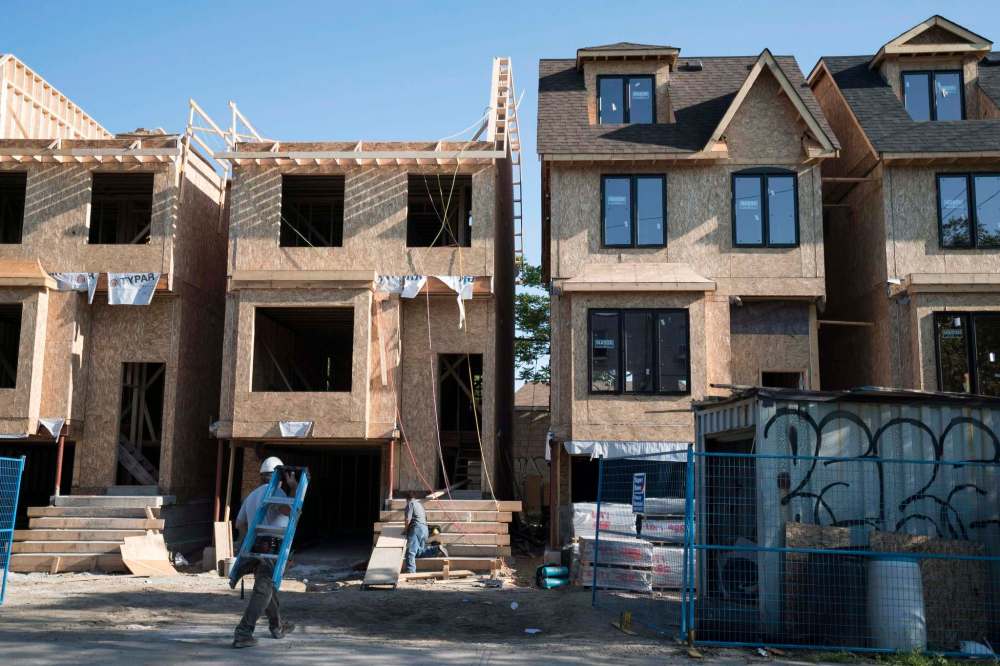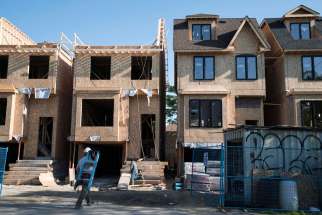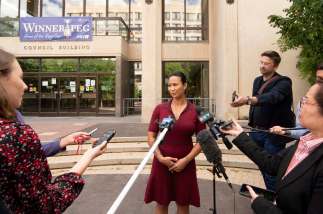Collaboration best way for city to make real impact
Read this article for free:
or
Already have an account? Log in here »
To continue reading, please subscribe:
Monthly Digital Subscription
$0 for the first 4 weeks*
- Enjoy unlimited reading on winnipegfreepress.com
- Read the E-Edition, our digital replica newspaper
- Access News Break, our award-winning app
- Play interactive puzzles
*No charge for 4 weeks then price increases to the regular rate of $19.00 plus GST every four weeks. Offer available to new and qualified returning subscribers only. Cancel any time.
Monthly Digital Subscription
$4.75/week*
- Enjoy unlimited reading on winnipegfreepress.com
- Read the E-Edition, our digital replica newspaper
- Access News Break, our award-winning app
- Play interactive puzzles
*Billed as $19 plus GST every four weeks. Cancel any time.
To continue reading, please subscribe:
Add Free Press access to your Brandon Sun subscription for only an additional
$1 for the first 4 weeks*
*Your next subscription payment will increase by $1.00 and you will be charged $16.99 plus GST for four weeks. After four weeks, your payment will increase to $23.99 plus GST every four weeks.
Read unlimited articles for free today:
or
Already have an account? Log in here »
Hey there, time traveller!
This article was published 17/07/2020 (1971 days ago), so information in it may no longer be current.
If Winnipeg Mayor Brian Bowman is serious about working with homebuilders to ensure new developments pay their fair share of infrastructure costs, he has to drop the phony political claim that “growth doesn’t pay for growth” and agree to work collaboratively, based on verifiable evidence.
That’s something the mayor refused to do when he brought in his controversial impact fee in 2017, which was quashed earlier this month by a Manitoba court as an unconstitutional “indirect tax.”
Bowman continues to advance the notion that because the City of Winnipeg has the legal right to impose an impact fee on developers — which the Manitoba Court of Queen’s Bench confirmed this month — this fee was deemed invalid based on a technicality.

However, the court ruled the impact fee wasn’t a fee at all, but an indirect tax the city did not have the constitutional authority to impose. It wasn’t a small technicality or a minor process issue; the court ruled there was no connection between the fee and the growth costs generated by new housing.
The court did not, as Bowman claimed, confirm “growth does not pay for growth.” It ruled there was no evidence presented by the respondents to show the connection between the fee charged and costs such as bridge upgrades, road repair or new civic buildings. The court also ruled the impact fee was not a “regulatory charge” that attempted to discourage new housing developments.
Had the city been able to make any of those connections with verifiable evidence, the fee would likely have been upheld.
That’s been Bowman’s problem from the beginning. He has relied on political buzz words instead of real analysis and independent evidence to demonstrate that new developments don’t pay their share of infrastructure costs.
Bowman said this week he will not appeal the ruling and instead wants to work with developers to find a solution. But he has to identify the problem first — if there is one — before generating possible solutions.
As court heard, developers already pay all on-site (and some off-site) infrastructure costs, such as roads, sewer and water hook-ups, traffic lights, etc. The question of whether the property taxes those homeowners will pay cover their share of infrastructure costs around the city has been addressed in past studies, which have shown new developments either break even or make a small net contribution to the city.
However, those studies may be out of date. Perhaps it’s time for a new, independent one that can answer the question of whether new developments in 2020 will pay their share of infrastructure costs. The terms of reference for such a study, and the consultant chosen to perform it, should be agreed upon jointly by the city and developers.
Why not do the due diligence and carry out a credible, independent study (unlike the politically charged Hemson Consulting Ltd. report Bowman commissioned in 2016) to proceed based on facts?
What the court made clear is that governments can’t just impose whatever taxes they want. In his ruling, Justice James Edmond cited a 2008 Supreme Court decision to help make his point:

“Raising revenues is one of the most powerful tools of government,” the top court wrote. “It involves the taking of property by the government. That is why taxes may be levied only by elected legislators in Parliament or the legislature of province under the Constitution Act, 1867. Where the connection between the use of the revenues generated from a government levy and the persons being regulated is doubtful, the courts will scrutinize the facts to ensure that the Constitution is not circumvented by executive or bureaucratic edict.”
Bowman made the right decision not to appeal the case; the city likely would have lost. More importantly, it’s always better to proceed through negotiations and good-faith talks rather than expensive court cases.
Let’s hope the mayor makes good on his new desire to work collaboratively with others. It’s a much better way to go.
tom.brodbeck@freepress.mb.ca

Tom has been covering Manitoba politics since the early 1990s and joined the Winnipeg Free Press news team in 2019.
Our newsroom depends on a growing audience of readers to power our journalism. If you are not a paid reader, please consider becoming a subscriber.
Our newsroom depends on its audience of readers to power our journalism. Thank you for your support.











